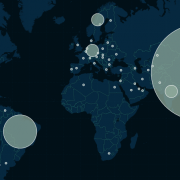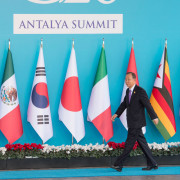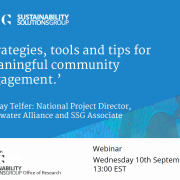The pressure mounts with 87 days to go until #COP21
A biweekly climate briefing for municipalities
About this service
Subscribe to this newsletter
Contact the editor
In this Issue #15
- A UN meeting in Bonn with [mostly] hopeful results
- Country commitments are falling way short of expectations
- Under 1.5C is cheaper than high carbon business
- Islamic scholars follow the lead of Pope Francis II
- Overcoming the gap: is the solution in non-state actors?
- News from other networks
- Featured network: Compact of States and Regions
On the road to Paris; a UN meeting in Bonn with [mostly] hopeful results
Negotiators met in Bonn this week to continue narrowing in on the elements of the Paris agreement, with nation states putting forward their preferences for a formal agreement. A series of high level meetings will follow where ministers seek to overcome a number of roadblocks. On the sidelines, campaigners joined climate vulnerable countries to ask to prioritise the loss & damage sections of the agreement that provide compensation to countries which experience the impacts of climate change, for example those who are displaced. Many developed countries have opposed the loss and damage mechanism but the discussions are increasingly constructive. The general tone as a result of the Bonn meetings is hopeful for a meaningful agreement in Paris. For a detailed review, see this press conference. Similarly, if you wish to see more and catch up with other webinars and ongoing, see this page for recordings.
Country commitments are falling way short of expectations, says UNEP
While the negotiations in Bonn are underway, the level of ambition demonstrated by countries in setting national GHG emissions targets is inadequate to prevent dangerous climate change. The United Nations Environment Program (UNEP) released a brief indicating that country commitments (INDC’s) announced to date leaves gap of 14 billion tonnes (CO2e) short of the reduction required to put us on a path to staying below 2 degrees warming. Note that the definitive source for assessing the equity of a country’s target rates Canada’s target as inadequate, and the US’s target as medium. Stay tuned for more discussion on the gap.
Staying under 1.5C is cheaper than high carbon business as usual, says Citibank
A new report from Citibank shows that the potential investment required to set a course toward a 1.5C world over the next twenty five years is actually cheaper than a business as usual, high-carbon, scenario. At the same time, their estimates show that the 1.5C scenario could avoid up to $US50 trillion in damage costs incurred by climate change impacts. This report joins a growing chorus of economic arguments in favour of meaningful climate action, highlighted by the work of the Global Commission on the Climate and Economy.
Islamic scholars follow the lead of Pope Francis II
In Istanbul, Turkey, sixty representatives from Islamic states met and presented the moral case for action on climate change. The declaration was written by a large group of Islamic scholars based on Islamic teachings. It was delivered to people of all faiths following the lead of Pope Francis II with his Encyclical. Islam holds 1.6 billion people as followers, including those wielding significant influence in oil producing nations. The declaration asks Muslims to step up to deliver a strong agreement in Paris. Game changing.
Overcoming the gap: is the solution from non-state actors?
We mentioned the gap between what countries are committing to and what is needed to prevent dangerous levels of climate change above. One possibility to fill the gap lies in the efforts of cities, corporations and states. A recent paper explores the breadth of these emerging networks [it’s growing!] while highlighting the need for a more cohesive and rigorous approach for as the authors indicate, right now there is a much fuzziness.
News from other networks
The Climate Action Network have a daily newsletter called ECO, providing a challenging voice to sort some of the wheat from the chaff arising in high level discussions over climate action. Since 1972, it has been a welcome addition to the discourse providing a credible and interrogative voice. Recently, ECO reported that developed countries have to raise their 2020 targets to at least 40% compared to 1990 levels to meet their fair share of the collective effort to stay below 2°/1.5°C.
Sign up here
Featured network: Compact of States and Regions
The Compact of States and Regions is an initiative that records greenhouse gas (GHG) emissions reduction targets and inventory data from sub-national governments. The Compact has twenty member governments representing over 220 million people and $8.3 trillion GDP and 1.81 GtCO2e (or 5%) of all global emissions (or 5%) of all global emissions. The group was formed at the World Summit Climate & Territories in Lyon, France and has established targets of a 90% reduction in GHG emissions by 2050 and 100% by 2060 and in renewable energy targets. Governments which have submitted recent progress reports include: British Columbia, California, Ontario, Oregon, Quebec, New York and Washington in North America; Jalisco, Rio de Janeiro and Sao Paulo in Central and South America; Basque Country, Catalonia, Lombardy, Rhone-Alpes, Scotland and Wales in Europe; and Australian Capital Territory and South Australia in Australia.
A briefing prepared by SSG’s Office of the Research
Copyright © 2015 Sustainability Solutions Group , All rights reserved.
VANCOUVER | MONTREAL | HALIFAX | NEW YORK | BRISTOL











